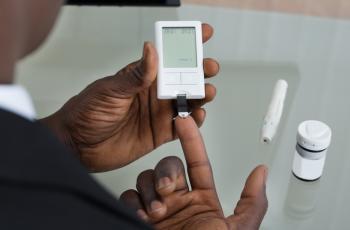Beyond A1C Movement Progresses in NIH/ADA Meeting on Patient Reported Outcomes
The National Institutes of Health and the American Diabetes Association turned their attention to a key alternative to A1C in diabetes research at a workshop held late last year. The meeting advocated for increased use of patient-reported outcomes, or PROs, in diabetes research.
At The diaTribe Foundation, we fight for an increased focus on outcomes beyond A1C, especially from regulatory agencies. Measurements like A1C alone do not reflect the 24/7 nature of diabetes; the challenges can include negative feelings, such as stress, guilt, failure, exhaustion, and fear, and immense treatment burdens. Advocating for increased use of PROs in clinical and regulatory settings is one of the leading goals of the #BeyondA1C movement.
Many of the speakers at the November meeting, which the diaTribe Foundation attended, talked passionately about the need to reduce the priority and prominence of A1C in diabetes management and instead measure outcomes that directly affect patients and caregivers. Incorporating PROs into regulatory decisions would mean product labels could include these broader outcomes that patients also care about. Patients would then have a better sense of how therapies affect the psychosocial elements of their diabetes. Similarly, incorporating PROs into healthcare settings would let doctors better understand their patients’ needs, aspirations, and life circumstances. This, in turn, would improve decision-making and boost patient engagement in treatment.
The NIH workshop shed light on four different, sometimes competing, perspectives on PROs: those of regulators, those of clinicians, those of patients, and those of payers. Notably, the final group was missing from this critical conversation, which is one of the major obstacles to implementing PROs in routine medical care and regulatory decisions. On the other hand, FDA representatives were active in the discussions, showing their openness to work with the diabetes community in the PRO movement.
Later this year, the organizers of this meeting will publish two documents with suggested next steps. We are eager to stay fully engaged and aim to continue the momentum as we advocate for outcomes beyond A1C.


